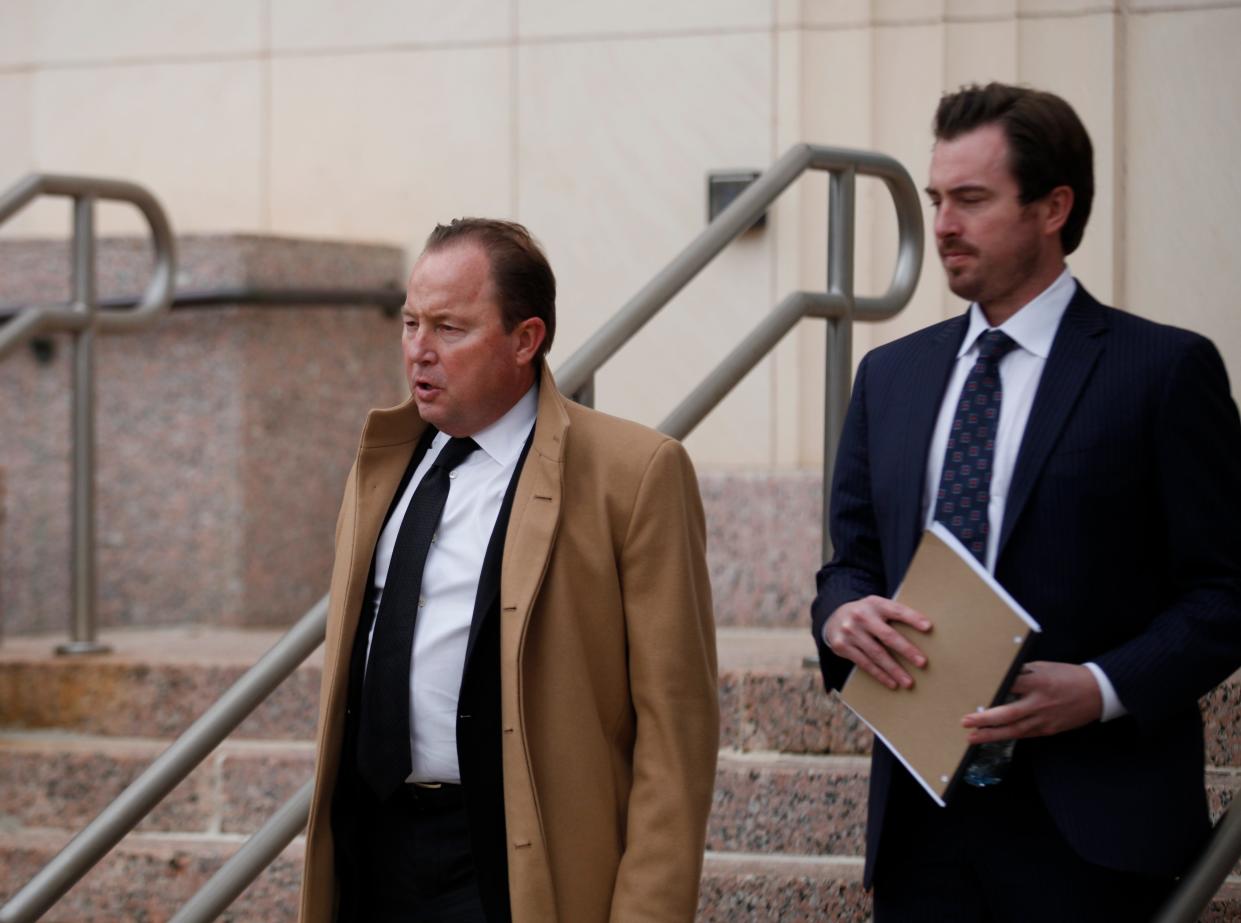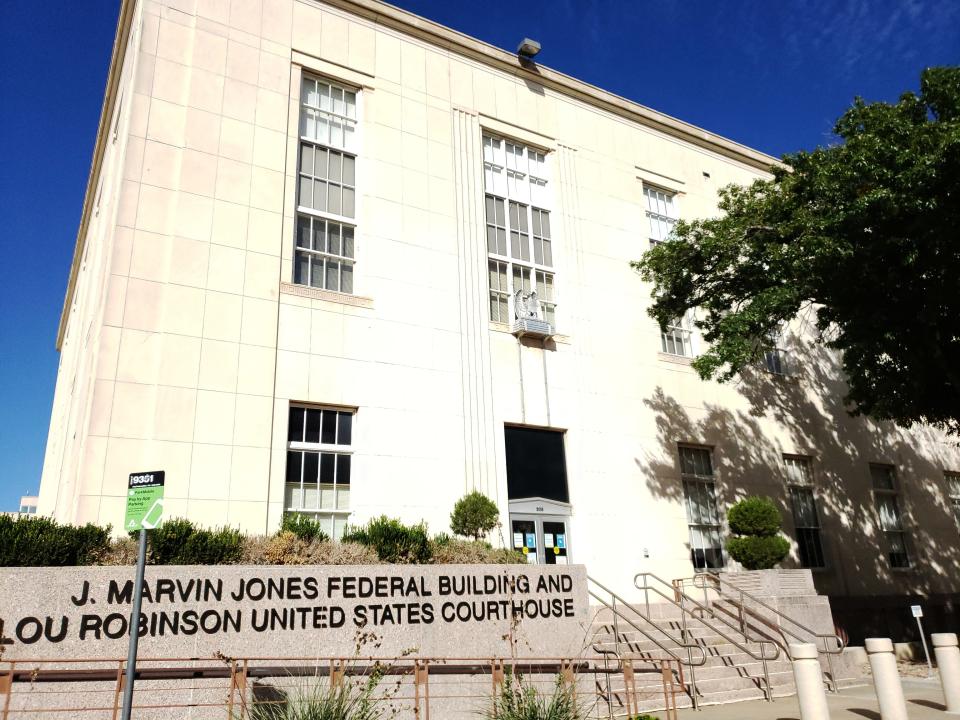Oral arguments heard in Bart Reagor appeal in federal court

Attorneys for former Reagor-Dykes CEO Bart Reagor appeared last week before federal appellate justices in New Orleans to deliver oral arguments as part of his appeal to reverse his bank fraud conviction and 14-year prison sentence.
Reagor was convicted in October 2021 by a federal jury in Amarillo of one count of making a false statement to a bank. He also faced two counts of wire fraud but jurors acquitted him of the charge. In March he was sentenced to 14 years in prison.

The verdict came after a five-day trial before U.S. District Judge Matthew Kacsmaryk, during which jurors heard from from International Bank of Commerce president William Schonacher, who said he believed the $10 million loan would be used as working capital for RDAG. He said he would not have approved the loan had he known Reagor would be using portions of it for his personal use.
Records show Reagor diverted about $1.76 million of the loan into his personal bank account and used it for personal expenses.
Reagor, 56, is serving his sentence at a federal prison in Louisiana.
In his appeal, Reagor argues that the evidence prosecutors presented jurors at his trial was insufficient to prove he knowingly made a false statement to IBC executives when he asked for a $10 million load he said he needed for working capital for his rapidly expanding business.
Attorney John J. E. Markham, II argued in the United States Court of Appeals for the Fifth Circuit before Chief Judge Pricilla Richman, and justices Carl E. Stewart and Catharina Haynes that jurors "impermissibly came to the conclusion that Reagor knew that working capital meant distributions."
He said jurors were given definitions of working capital but the definition didn't matter since prosecutors had to prove that his client knew he wasn't allowed to take owner distributions from the loan.
"The matter is what Reagor thought," Markham told the justices. "It's a state of mind crime."
He said nothing in the record showed that Reagor told IBC executives that the entirety of the loan would go to working capital.
In fact, he said the records showed that as IBC agents drafted the loan agreement, RDAG representatives asked them to amend a clause that prohibited owner distributions.
An IBC lawyer told jurors that Reagor needed permission from the bank to make owner distributions because using the money for purposes beyond working capital would have caused the company to default and violate the loan agreement.
Amanda Burch, who is representing the government in the appeal, told justices that prosecutors presented enough evidence that showed Reagor deceived IBC executives during the meeting.
She said an internal loan memorandum that bank executives wrote after the meeting showed they believed Reagor would use the entirety of the $10 million loan for the company.
Markham argued that the banking memorandum reflected the bank's state of mind, and not Reagor's, when they considered approving the multi-million dollar loan.
Justices have to make their rulings in a light most favorable to the jury's verdict and Burch argued that prosecutors presented jurors enough evidence to help them make reasonable inferences and reach a guilty verdict.
Prosecutors at the trial said the loan agreement was irrelevant as Reagor would not have acquired the loan in the first place without deceiving IBC representatives.
"We believe that the issue in front of the jury was whether Reagor knew at the time that he made these representations (to IBC executives) that they were false," Burch told justices. "That he told the bank I'm going to use this money for working capital. And working capital is, 'I'm leaving this money in the company to run the company' when that was never his intent as evidence by this email. "
Burch was referring to emails prosecutors presented jurors in which Reagor instructed RDAG chief financial officer Shane Smith to transfer about 33 percent of the IBC loan to his and his partner, Rick Dyke's, bank accounts.
Reagor further instructed Smith to keep the transfers confidential, saying "How we are going to manage this capital is 100000000% confidential between us and is not ANYONE ELSE'S BUSINESS!!!!!! NOBODY'S!!!!!!!!!!!!! NO BANKERS OR ANYONE ELSE! OUR BUSINESS! GAME ON!!!!!!!!!!!!"
Burch argued that jurors were free to make an inference that Reagor knew he couldn't take the money from the IBC loan for his personal use.
"They are free to infer guilty knowledge from that," Burch said in her oral arguments. "They don't have to infer guilty knowledge from that, but they are free to and this court must draw the inferences in light of the jury verdict."
Burch said jurors were allowed to infer Reagor's intent with how quickly he took portions of the loan for himself and his partner.
The day the first portion of the IBC loan landed in RDAG's accounts, $766,000 of it went to Reagor's bank account. Reagor would take another million dollars for himself when the second half of the loan arrived in his company's account, the evidence showed.
The case against Reagor stemmed from an investigation into a large-scale fraud scheme orchestrated by Smith and executed by 15 former RDAG employees in an attempt to delay the repayment of money owed to the company's creditor, Ford Motor Credit, for vehicles the dealership sold.
The scheme unraveled in 2018 by a surprise audit of the dealership by Ford representatives, who found that RDAG employees faked records to hide that they sold more vehicles than what they were told and did not pay for them within a contracted deadline.
Smith pleaded guilty to his role in the fraud scheme and was sentenced in January to seven years in prison. The other former RDAG employees also pleaded guilty to their roles in the fraud schemes and have also been sentenced.
This article originally appeared on Lubbock Avalanche-Journal: Oral arguments heard in Bart Reagor appeal in federal court

